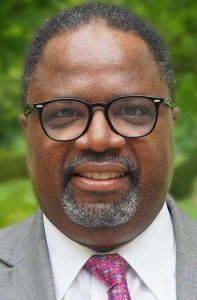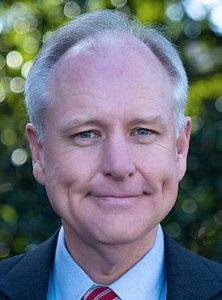For the most part, Baptist leaders in the United States heaped praise on former U.S. President Jimmy Carter after his Dec. 29 death at age 100.
Apart from Al Mohler, a Southern Baptist Convention seminary president who accused Carter of international crimes, other Baptist leaders remembered the peanut farmer from Georgia for his compassion and passion for justice.
Among those was Mohler’s counterpart at Southwestern Baptist Theological Seminary in Fort Worth, Texas, who took an opposite approach to the president of Southern Baptist Theological Seminary in Louisville, Ky.
Southwestern President David Dockery recalled his experiences as president of Union University in Tennessee when he one day received an out-of-the-blue phone call from Carter.
“I will never forget my assistant walking into my office and saying there was someone on the phone who said he was Jimmy Carter, and it sounded just like him. Having never met the former president, I picked up the phone and enjoyed a pleasant conversation,” Dockery wrote in a Baptist Press article.
“He told me that he had read my book, Christian Scripture and wanted to discuss further matters of biblical inerrancy, authority and interpretation. Southern Baptist leaders Jim Henry, Morris Chapman, Jimmy Draper, Tom Elliff, Paige Patterson, Timothy George and a few others were also invited to the time of lunch and conversation. I was certainly surprised by the invitation but was quick to accept. Carter had asked Timothy George and me to join him in his study to discuss his understanding of biblical authority and the priesthood of the believer, and other Baptist distinctives, prior to the lunch with the others in his home.”
Dockery said Carter “wanted to be a peacemaker in the world” and in the SBC.
“Everything about the day and the visit with him was amicable, even as the conversations were frank and substantive. The former president, who as a polymath, was seemingly interested in almost everything, including matters of theology and denominational life, noted that although he had been largely influenced by the writings of European theologians, he affirmed the authority of Scripture. His laudable kindness, humility and his desire to understand areas of agreement and disagreement continue to stand out in my memory.”
“Although he had been largely influenced by the writings of European theologians, he affirmed the authority of Scripture.”
Across wide-ranging conversations that day, Carter was “humble, eager to listen and learn, and hopeful to bring together moderates and conservatives in the SBC,” Dockery said.
While Carter was a Southern Baptist most of his life, he joined those who left the SBC in 2000 after adoption of a new version of the Baptist Faith and Message doctrinal statement shaped by leaders of the “conservative resurgence.”
Carter became influential in the new movement of the Cooperative Baptist Fellowship and in the historic American Baptist Churches in the USA. Leaders from both those movements issued statements of gratitude for Carter’s life and witness.
Jeffrey Haggray, executive director of the American Baptist Home Mission Societies, called Carter “a humanitarian who used his considerable political and social influence to improve the quality of life for countless people.”
Haggray said Carter also was “a beloved Baptist leader who dedicated his public life to embodying Christian principles of sacrificial love for all people, compassion, peace-making, and integrity.
He pointed to the significance of Carter’s leadership in calling together representatives of more than 30 Baptist organizations to create what became the New Baptist Covenant.
“Believing that our love and pursuit of justice should characterize us, President Carter called Baptists to break the barriers of race, gender, and geography and build bridges toward the Beloved Community,” he said.
“The seed that President Carter sowed 16 years ago among Baptists has grown and blossomed among congregations, denominations and Baptist-related organizations that continue to answer God’s call to confront the lie of white supremacy; champion the poor, the marginalized and the oppressed; disrupt the cradle-to-prison pipeline; and honor the diverse workings of the Holy Spirit to create a society where the dignity and worth of every person is honored and respected.”
Likewise, CBF Executive Coordinator Paul Baxley expressed “gratitude for the faith, life, leadership and witness of President Jimmy Carter.”
Baxley said: “My hope is that our reflection on President Carter’s life will cause us to more deeply embrace the commitments that defined his life, not only his devotion to Christ but also to the pursuit of just peace, genuine racial justice, the faithful stewardship of creation, relentless honesty and integrity and a politics marked more by what is right than what is politically beneficial. In all these ways, he lived out the mission of Jesus that he also called all Baptists to embrace, namely that we join Jesus in bringing good news to the poor, release to the captives, recovery of sight for the blind and freedom for the oppressed.”
Carter’s leadership and support “were vital in the founding of our Fellowship, delivering keynote addresses at the 1993 General Assembly and again at our 10th anniversary celebration in 2001,” he added.
Throughout his life, Carter and his family were active members of Baptist churches in Plains, Ga.; Atlanta; and Washington, D.C. While president, he taught a Sunday school class at First Baptist Church of the City of Washington, D.C. After leaving the White House, he continued teaching Sunday school at Maranatha Baptist Church in Plains.
Related articles:
Jimmy Carter and the strength of fields | Opinion by Erich Bridges
Jimmy Carter was the most decent and respectable president of my lifetime | Opinion by Wendell Griffen
Jimmy Carter, a lifelong Baptist, left a legacy of faithfulness, compassion and justice
Love, faith and simplicity: Remembering our visit with President and Mrs. Carter | Opinion by Barry Howard
President Carter: The second half of life can be better than the first | Opinion by Maina Mwaura
Mohler accuses Jimmy Carter of international crimes





